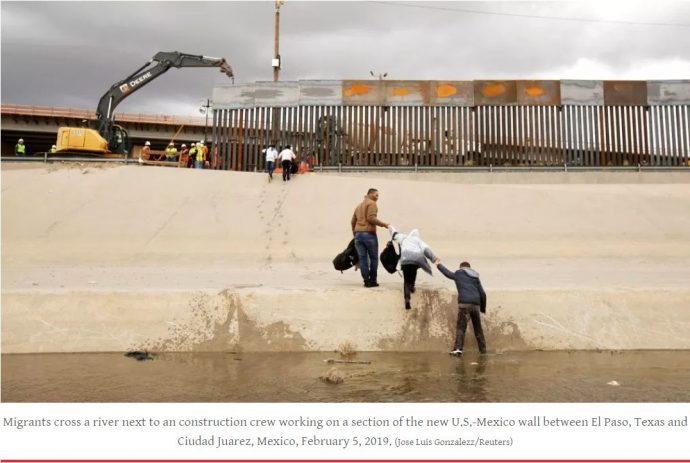It’s easy to assume that most Republicans and conservatives don’t even know this about the wall and the law — here is John Yoo:
For all the legal analysts wringing their hands at the prospect of such a move, the courts would likely uphold it.
It seems increasingly likely that President Trump will declare a national emergency at our southern border in order to access funds to build a wall. Last week, I had the pleasure of debating National Review’s very own David French on the legality of such a move in a Federalist Society-sponsored tele-conference. I wanted to take the opportunity to further explain my defense of Trump’s legal authority in response to David’s excellent points.
David and I agree that Congress has not placed any serious limits on the president’s power to declare an emergency and that the Supreme Court was unlikely to second-guess him. For much of our history, presidents have understood the Constitution’s grant of “the executive power” to include a power to declare national emergency. Thomas Jefferson effectively did so in response to Aaron Burr’s effort to raise a rebellion in Louisiana; Abraham Lincoln did so, with far more justification, at the start of the Civil War; FDR did so, with far less justification, at the start of his presidency in response to the Great Depression; and Harry Truman did so at the start of the Korean War.
In 1976, Congress enacted the National Emergency Act in its burst of post-Watergate reforms designed to restrict presidential power. While the new law terminated most existing emergencies, it did not set out any definition of a national emergency or limit the president’s ability to declare one. The law only sets out the process for publication and congressional notification of the president’s declaration. So David and I agree that there are few limits on the president’s ability to declare an emergency for good reason. Indeed, every president since 1976 has used the NEA to declare a national emergency, several under circumstances far less immediate than this one, and the Supreme Court has never overturned one.
Read more: National Review
Image credit: www.nationalreview.com.

